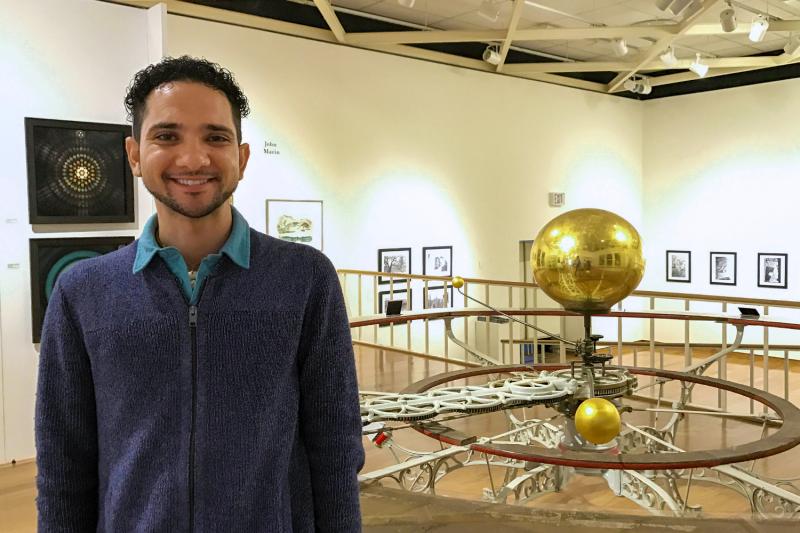What are your key responsibilities?
I am the senior science writer at the NOAA Fisheries Pacific Islands Regional Office. As a science writer, I share stories about our conservation and management activities in as many formats as I am able. This runs the gamut from: a short article about the birth of a new monk seal to a Q&A about one of our partners to a feature story about a project we funded to help revitalize ancient Hawaiian loko iʻa (fishponds) to a StoryMap about a new type of coral nursery. I work with the rest of our wonderful communications team to develop and edit outreach products, and I help manage our Twitter and Facebook accounts. I am also a photographer and videographer. I have produced videos about the fishing culture of American Samoa, a project that uses sea urchins to clean up invasive algae, and the stranding of a young melon-headed whale, among others.
Where did you grow up?
I grew up in Waiʻanae, an underserved community on Oʻahu, Hawaiʻi.
What is your educational background?
I attended the University of Hawaiʻi at Mānoa to study physics and astronomy in hopes of one day specializing in extrasolar planets. Upon earning my B.S. in physics and completing a couple of astronomy research projects, I realized that the life of a scientist (or at least that of an astronomer) wasn’t for me. What I really enjoyed was sharing and talking with people about science—this passion, along with my longtime love of writing, led me to the field of science journalism. I earned a certificate in professional writing from UHM, followed by an M.A. in journalism and an advanced certificate in science, health, and environmental reporting from New York University.
Is there a book, quote, or person that influenced you to be the person that you are today?
While growing up, I had strong female role models who shaped who I am today, particularly my mother and my eldest sister. They have both always been hard-working women who showed me through their words and actions how true strength comes from compassion, kindness, and generosity. I have also always taken to heart the Golden Rule: Treat others the way you want to be treated. I try to keep these ideals in mind not only during my interactions with other people, but also in the way I treat this planet—without which none of us would be here. I am far from perfect, and I fail more often than I like to admit. But I am grateful that I am able to look to these role models and find the motivation and inspiration to keep growing as a person.
What does Pride Month mean to you?
Pride Month for me is a time to celebrate everything that makes me uniquely me. But more than that, it’s a time for visibility and acknowledgement of the LGBTQ+ community. During my youth, I didn’t know any other gay people, and external factors in my life taught me that the feelings I had were wrong. Because of that, it took me far too long to come to grips with my own sexuality. I even went through a bout of depression partly because of this erroneous belief.
Queer representation and LGBTQ+ rights have come so far since that dark time in my life, but we still have so much more work to do. Many straight, cis-gendered people are still unable to see past our differences to realize how alike we all are. They still see the LGBTQ+ community as being “other” and deserving of discrimination and even hatred. Even today, young queer people are being thrown out on the streets—by their families—because of who they are. Even today, LGBTQ+ people are being murdered at disproportionate rates because of who they are. And that’s just in the United States, where we now have many protections and rights long held from us (and not available in many other countries).
Pride Month is a time for the world to recognize that we are here and have always been here, but we are still suffering. It is a time to acknowledge that queer people deserve the same respect and love as everyone else. It is my hope that by bringing attention to the issues still prevalent in this world, Pride Month will one day no longer have to be a vehicle to bring about positive change—it will instead be a time to celebrate and remember the heroes in the community and our allies who fought so hard to bring equality to all.
What advice would you have for today’s youth interested in a federal government career?
I have two pieces of advice for youth interested in really any type of career.
First: Take the time to really understand why you’re interested in that career. Sure, you can get into it just to make money, but that will likely only keep you happy for so long. For me, I love working for NOAA Fisheries (as a contractor with Lynker) because I know it’s an organization that is trying to make this country and this world a better place. It’s an organization that is trying to make sure that our natural resources are around for future generations to enjoy. It’s my job to tell the public what we do, show why this work is important, and teach people how they can help. In this job, I only play a miniscule role in trying to achieve NOAA Fisheries’ goals, but I wake up in the morning knowing that I am using my skills to help this planet and its inhabitants.
Second: You are unique, so try to realize what it is that you have to offer, whether that’s a particular set of skills, or a distinct perspective fashioned from your experiences and background. It’s that uniqueness that will help you get the career you want and thrive in it.





